Anand Gandhi on the persuasive power of immersive stories at Synapse Conclave
by Almas SadiqueMay 16, 2024
•make your fridays matter with a well-read weekend
by Aarthi MohanPublished on : Jun 18, 2024
The Synapse Conclave 2024, hosted by the Shiv Nadar Foundation in Gurugram, New Delhi, India on February 24-25, 2024, facilitated dialogues among visionaries and innovators from different sectors to probe the intersection of human and artificial intelligence. Amidst the evolving technological milieu, the two-day conference served as a conduit for exchanging ideas, dissecting complexities, addressing challenges, and envisaging a future where technology enriches humanity’s core values.
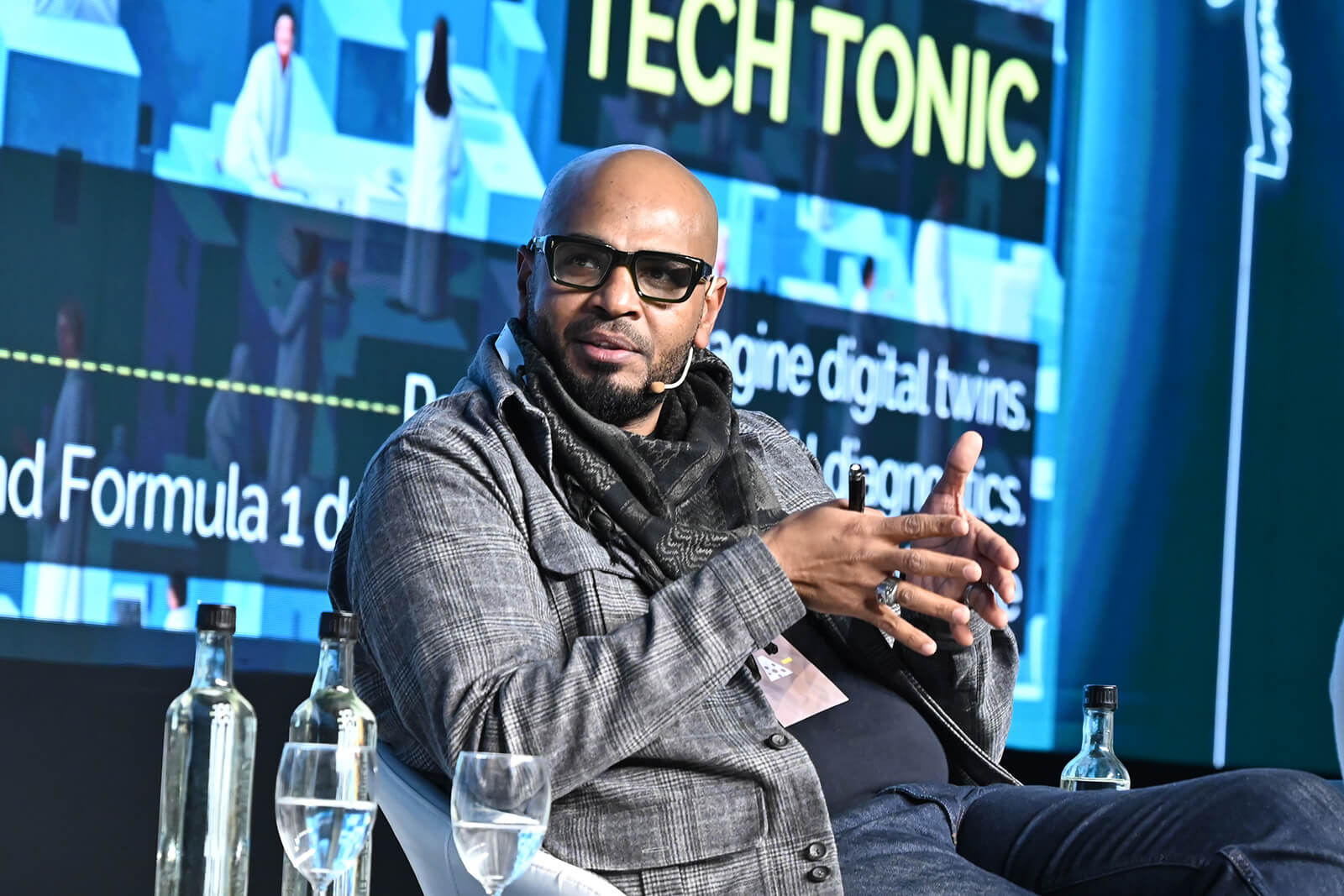
Under the evolving fields of AI and tech and wellbeing, two distinguished voices offered compelling perspectives on how AI innovations are reshaping the future of healthcare, and what ethical frameworks are essential for guiding their development. Hany Elosman, the Director of Computational Medicine and Digital Health Tech at the pioneering Neom project in Saudi Arabia, delved into his vision for a platform inspired by the realms of Formula 1, NASA, and counterintelligence. His exploration of how these fields inform Neom's healthcare endeavours highlighted the potential for technology to revolutionise diagnostics, drug discovery, and personalised medicine. By focusing on the importance of proactive prevention and predictive models, he underscored the pivotal role of AI in shaping the future of healthcare design.
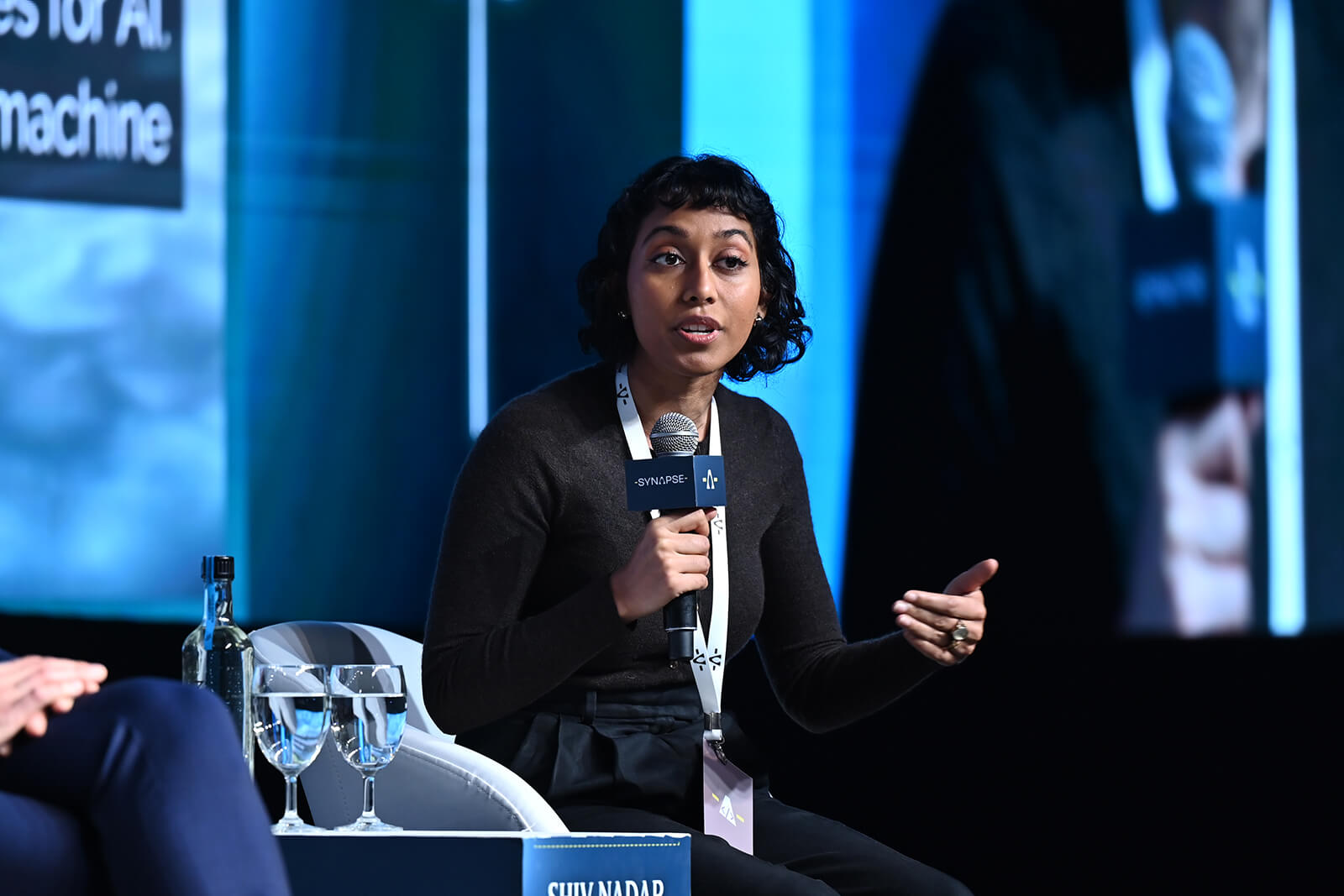
On the other hand, Irene Solaiman, the Head of Global Policy at Hugging Face, approached the discourse from a different angle, raising critical questions about aligning culture and values with AI and algorithms. Through compelling examples and case studies, she highlighted the need for robust frameworks that prioritise fairness, transparency, and accountability in AI deployment. By fostering an inclusive dialogue on ethics, Suleiman catalysed reflections on the societal implications of AI advancements and the imperative of aligning technological progress with human values. Despite their distinct backgrounds and areas of expertise, both speakers shared a common commitment to utilising technology for positive societal impact while upholding ethical principles and human values.
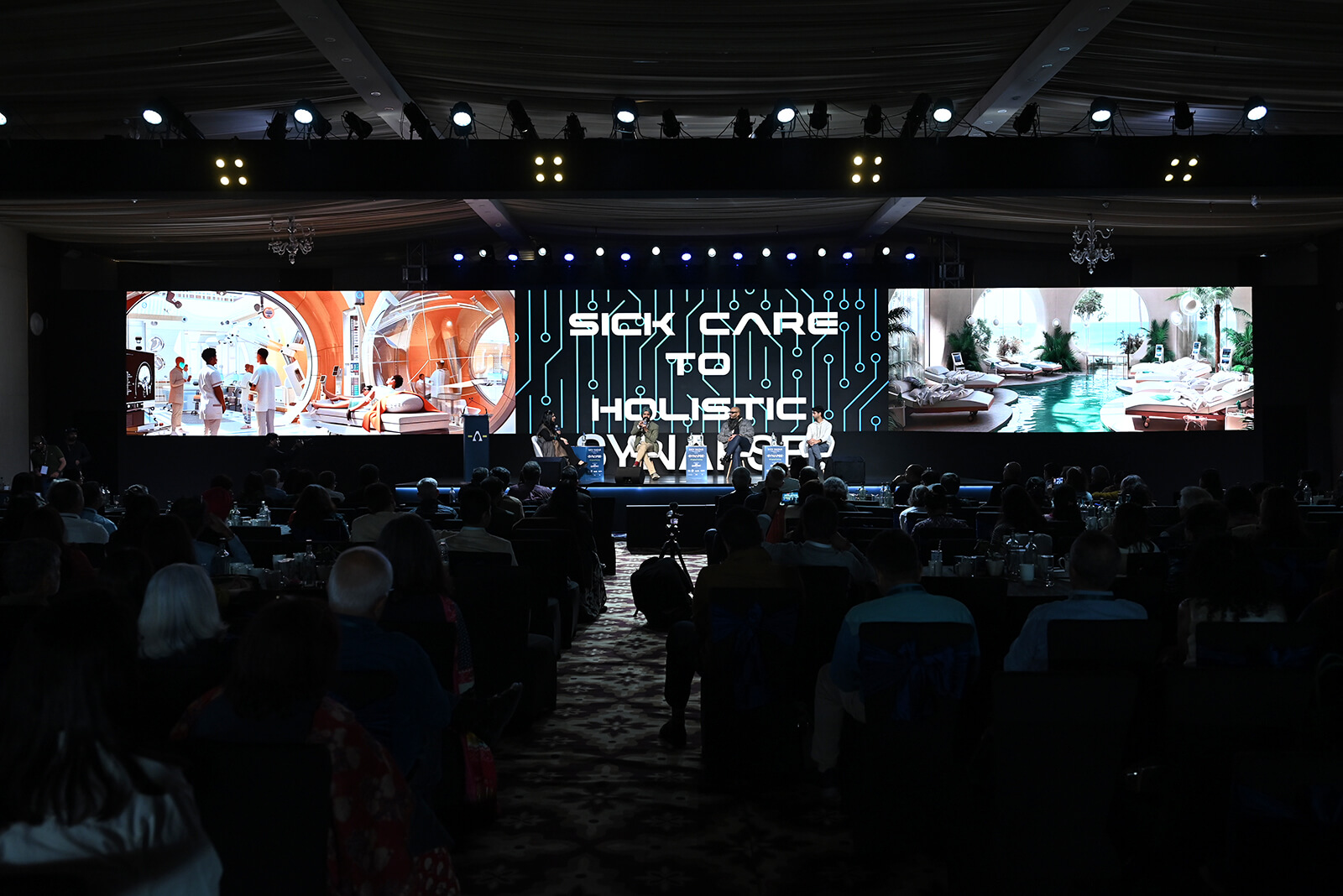
Elosman, a luminary in computational medicine, envisions a future where healthcare transcends its traditional boundaries. With a background in clinical laboratory medicine, his journey from diagnosis to data-driven solutions epitomises the evolution of healthcare in the digital age. At Neom Project, a flagship initiative in Saudi Arabia, he spearheads efforts to integrate cutting-edge technology with clinical expertise, paving the way for proactive prevention and personalised healthcare solutions.
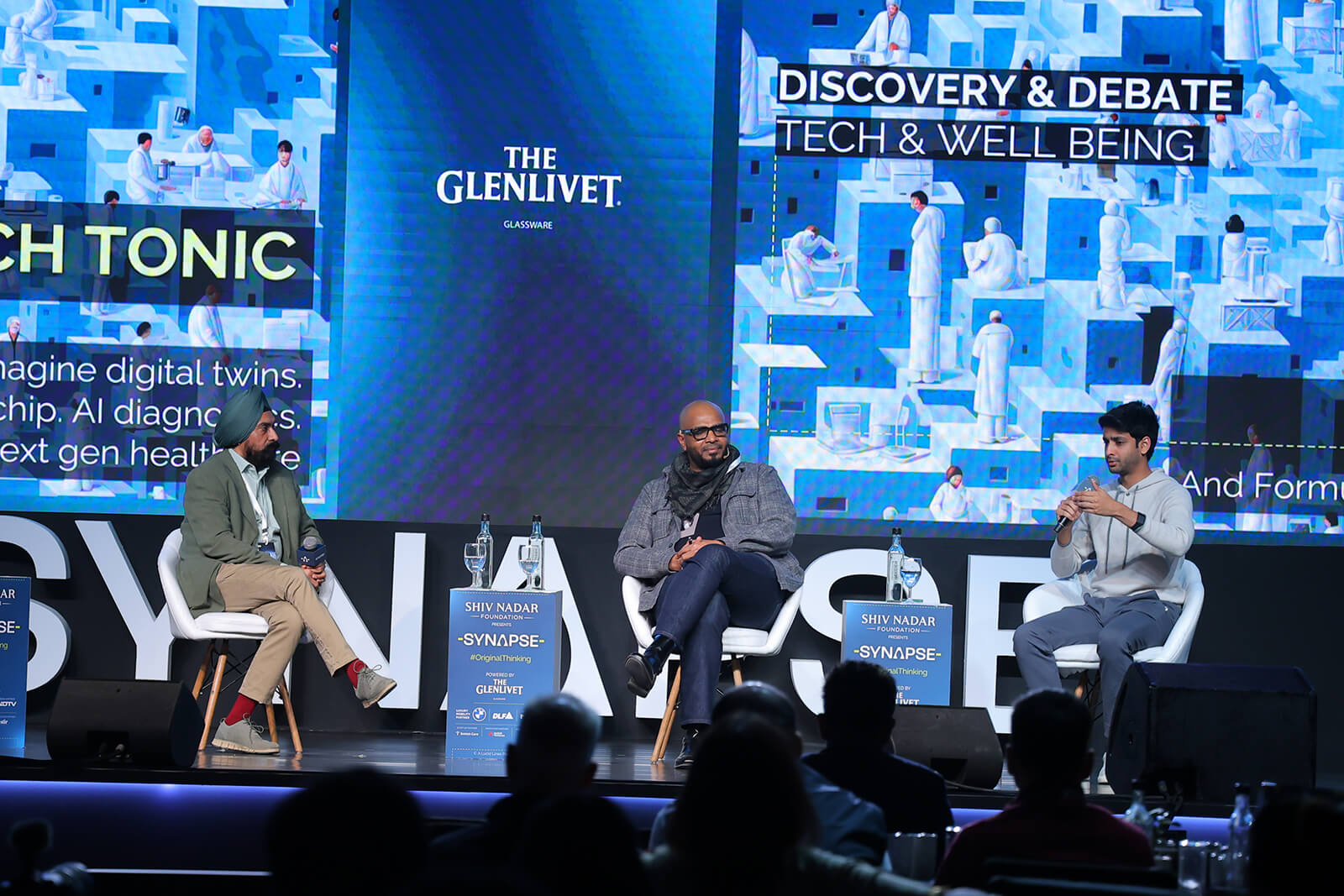
In response to STIR’s inquiry about Neom’s mission to revolutionise healthcare, the speaker emphasised on a commitment to proactive prevention, highlighting the importance of leveraging data and technology to predict and prevent illnesses before they escalate. He spoke passionately about the ethical dilemma of data collection and surveillance, advocating for voluntary data sharing and the need to demonstrate the value of such information to patients. His insights underscored the importance of a symbiotic relationship between patients and healthcare providers, built on trust, transparency, and mutual benefit.
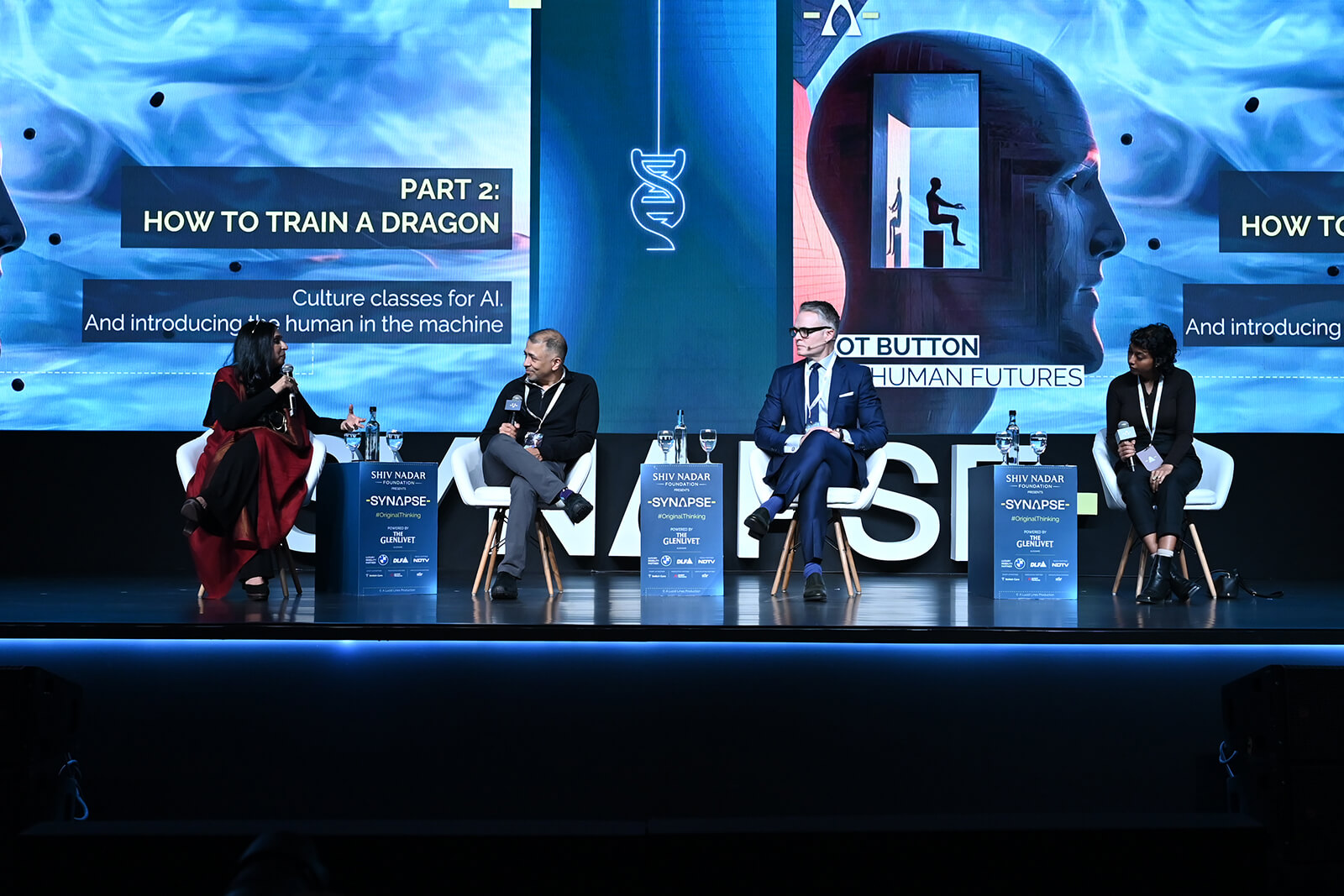
Solaiman offered a complementary perspective on responsible AI development. With a focus on cultural value alignment, she highlighted the importance of considering diverse cultural contexts in AI design and deployment. Her work at Hugging Face, a platform dedicated to democratising AI, exemplifies a commitment to inclusive and accessible design in the field of artificial intelligence. The speaker leverages her expertise in bias research and public policy to shape ethical guidelines and standards that promote cultural diversity and equity in AI technologies.
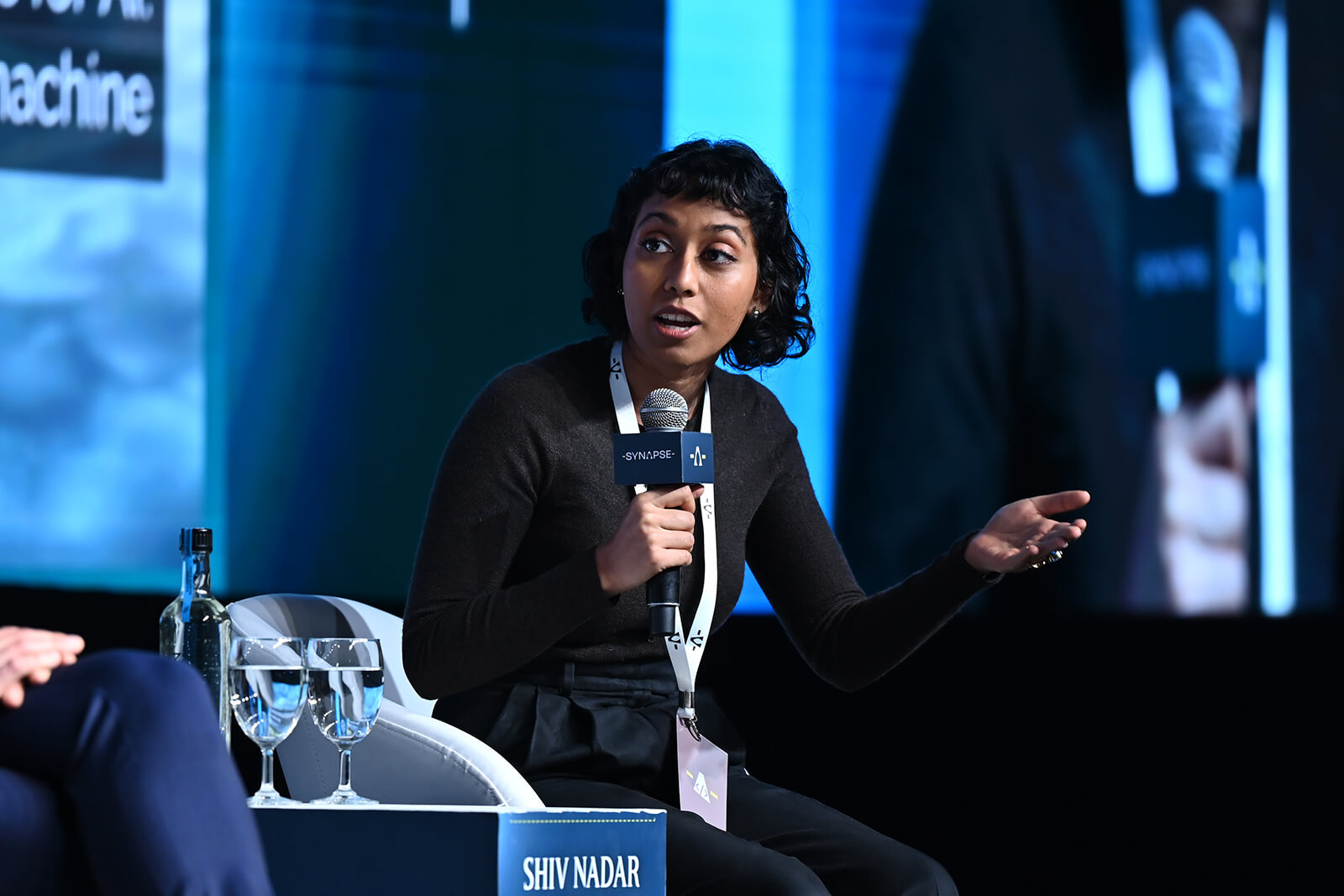
Elaborating on her motivation centred around cultural value alignment and how systems can be optimised to suit the cultures they are deployed, the young researcher elucidates the complexities inherent in reconciling diverse perspectives. "Cultural value alignment is paramount in AI development," she asserts, emphasising the need for robust guidelines and international standards. As AI continues to permeate global societies, she advocates for an approach that respects cultural nuances and values, ensuring that AI technologies serve as tools for empowerment rather than instruments of coercion.
One of the key challenges highlighted by Elosman was the ethical dilemma surrounding data collection and privacy. Drawing an analogy to baking a cake, he emphasised that data, like the ingredients, holds no inherent worth until effectively utilised. He highlighted the importance of transforming raw data into meaningful insights that benefit both healthcare providers and patients. Reflecting on his experiences, he underscores the importance of transparency and voluntarism in data sharing. "At Neom, data collection is approached with utmost sensitivity to individual privacy," he explains, sharing with STIR the need to demonstrate the tangible benefits of data sharing while safeguarding individual rights.
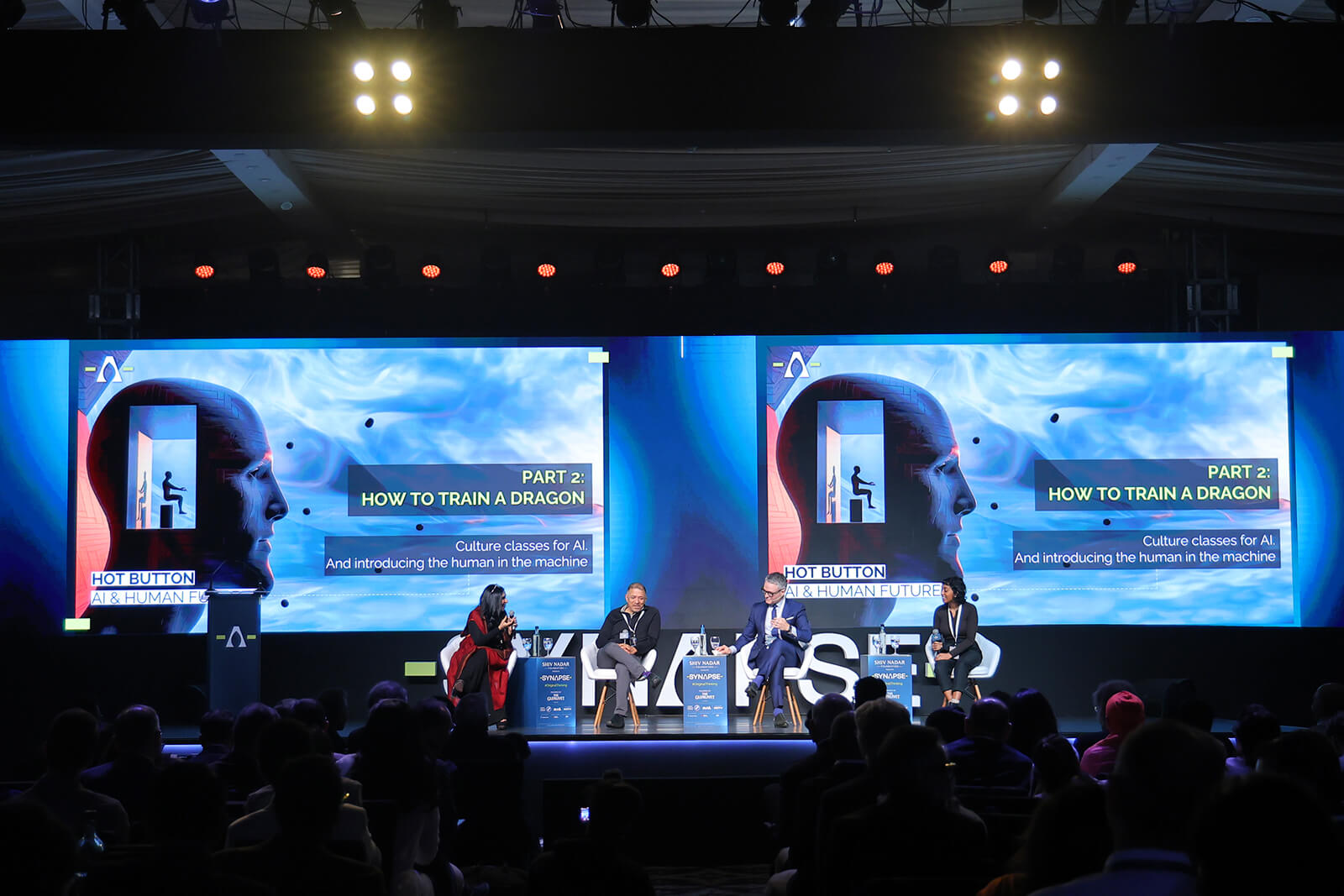
Echoing Elosma's sentiments, Solaiman sheds light on the importance of ethical data practices in AI development. She modestly acknowledges to STIR, "I'm not an ethicist," before discussing the complexities involved. She shared the importance of safety work in navigating ethical considerations and noted the absence of a universal checklist, advocating instead for guidelines and better international standardisation. Highlighting AI's global impact, she stressed on collaboration across borders and disciplines. Moreover, she explained that responsibility for ethical AI extends beyond technologists, urging contributions from diverse fields and communities. This inclusive approach is crucial for addressing ethical challenges and ensuring diverse perspectives are considered. Overall, her insights underscored the need for ongoing dialogue and collaboration among stakeholders to shape a future where AI serves the common good.
As the conversation shifted towards the symbiotic relationship between human intelligence and artificial intelligence, the speakers underscored the mutual benefits inherent in such a partnership. They expressed concerns about the prevailing focus on enhancing AI capabilities at the expense of human involvement, cautioning against the potential real-life manifestation of dystopian narratives like Terminator. Emphasising the need for a balanced approach, they acknowledged the evolving nature of AI systems and the imperative to prevent their dominance over human agency. Instead, they advocated for systems that supplement human expertise rather than supplanting it, stressing the importance of understanding the nuanced impacts on various sectors and expertise. This perspective, they asserted, is essential for navigating the rapid integration of AI systems and ensuring their alignment with human values and labour considerations.
Synapse Conclave 2024 served as a testament to the power of collaboration and innovation in driving positive change. Through insightful discussions and thought-provoking presentations, attendees gained valuable insights into the opportunities and challenges presented by the intersection of human intelligence and artificial intelligence. As society continues to navigate the complexities of advanced digital technology, the lessons learned will help shape the future of healthcare, AI, and beyond.
Synapse Conclave 2024 focuses on science, technology and society, exploring the exciting and troubling implications of age reversal, gene editing and big data. STIR as an amplification partner brings you a series of conversations from the lineup that warrant further reflection.
by Bansari Paghdar Sep 27, 2025
From prayer spaces to gender-appropriate areas, Saudi Arabia's evolving workspaces were at the forefront of the country's first dedicated trade fair for workplace solutions.
by Aarthi Mohan Sep 26, 2025
In conversation with STIR, the Paris-based collective reflects on practise rooted in culture, accessibility and cohesive energy, along with their artistic direction at Maison&Objet 2025.
by Anushka Sharma Sep 25, 2025
The 2025 edition of the interiors trade show united global innovators, regional pioneers and local talent, showcasing the Kingdom’s evolving design landscape.
by Mrinmayee Bhoot Sep 20, 2025
The Indian furniture brand recently opened an immersive furniture space in Hyderabad, India, allowing visitors to interact with pieces by brands such as Poltrona Frau and de Sede.
 surprise me!
surprise me!
make your fridays matter
SUBSCRIBEEnter your details to sign in
Don’t have an account?
Sign upOr you can sign in with
a single account for all
STIR platforms
All your bookmarks will be available across all your devices.
Stay STIRred
Already have an account?
Sign inOr you can sign up with
Tap on things that interests you.
Select the Conversation Category you would like to watch
Please enter your details and click submit.
Enter the 6-digit code sent at
Verification link sent to check your inbox or spam folder to complete sign up process



by Aarthi Mohan | Published on : Jun 18, 2024
What do you think?